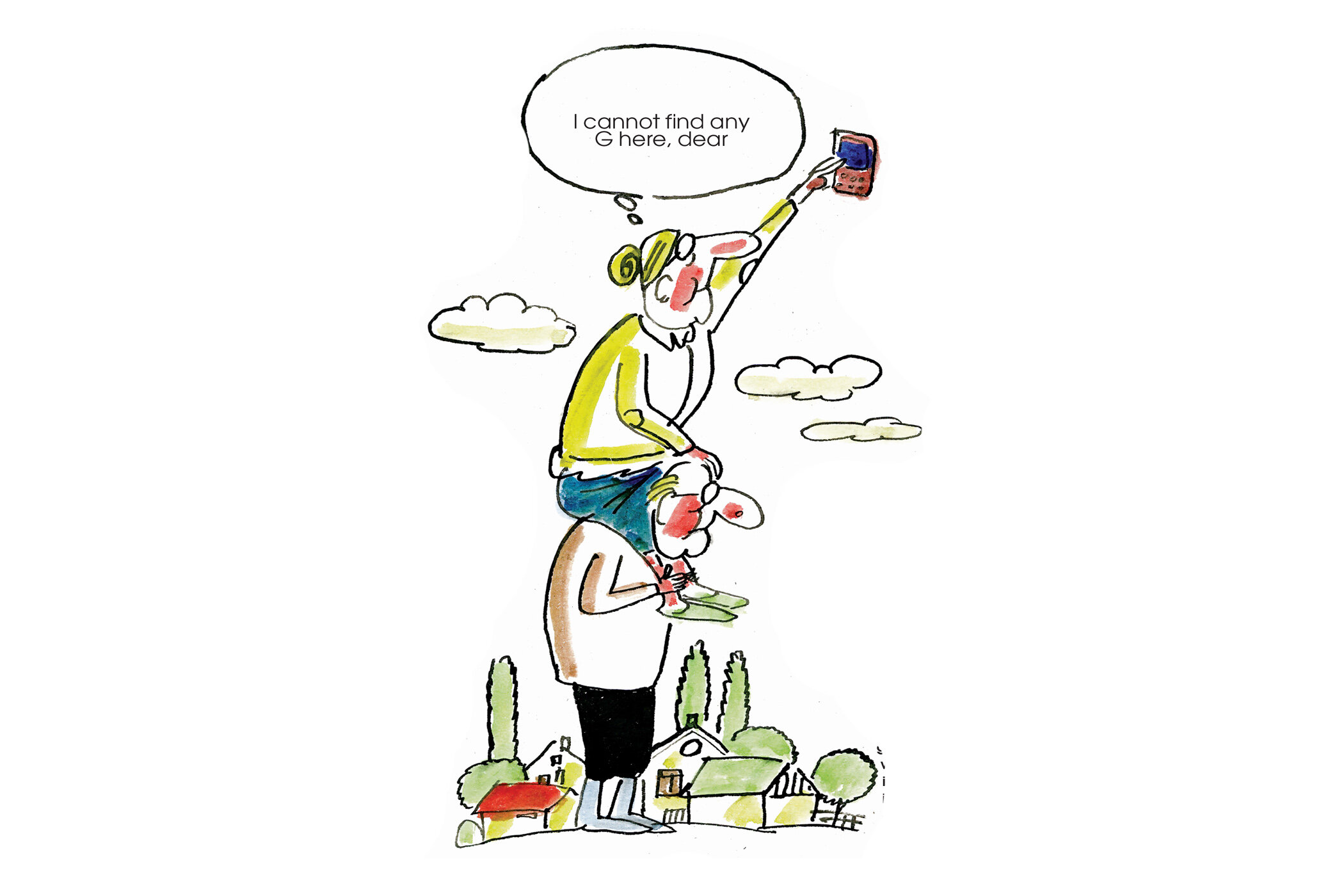Digital Transformation Minister Mykhailo Fedorov wants to make Ukraine the most convenient state in the world.
The 29-year-old, tech-savvy official has grand plans: to transfer all state services online, to cover all of Ukraine with mobile internet, to make 6 million people digitally literate and to ensure that the tech industry secures 10% of Ukraine’s gross domestic product, compared to 4% today.
But that may be just too ambitious. The ministry still has to overcome Ukraine’s ubiquitous corruption, budget shortages, lack of legal regulations and cybersecurity threats.
Shortage of state money
Fedorov has spearheaded the Ministry of Digital Transformation since August 2019 and shown himself to be an ardent supporter of the electronic government initiative backed by Ukrainian President Volodymyr Zelensky.
And, so far, his ministry has been moving forward quickly.
In February 2020, it rolled out a mobile application Diia that allows users – 4 million now – to keep documents in their smartphones: passports, driving licenses, vehicle registration certificates, car insurance, and student IDs.
The ministry has also launched website Diia, where one can receive about 30 state services like registering as a private entrepreneur; the website also helps get documents for a newborn baby. One million people have used at least some of the services through the website.
These achievements, however, are not enough for Fedorov. He says his ministry is constrained by a lack of financing, with a yearly budget of only $5.7 million. “If we had had more money, we could have moved 100% faster,” he says.
From the beginning, the newly created ministry was financed by foreign donors: U.S. Aid for International Development, the Swiss-Ukrainian program EGAP, European U-LEAD, and Canadian SURGe.
Ukrainian companies that contributed to Diia — including the biggest Ukrainian tech companies EPAM, Sigma and Kitsoft — di pro bono work. “They help us because they like what we do,” Fedorov says.
However, the minister said he would rather have Ukraine’s government as the main investor. “We are boasting that we spend zero of state’s budget on our projects, but (actually) I am ashamed of it,” Fedorov says.
Fedorov hopes his ministry will have more supporters in the future.
“I hope that before submitting the budget declaration for the next year, it will be clear to everyone what we do and we will get a normal budget for our projects,” Fedorov says.
Killing corruption
But, of course, not everyone agrees that what the Digital Transformation Ministry does is useful, especially in a developing economy struggling with corruption like Ukraine. Many people insist digitalization shouldn’t be a priority. Fedorov counters: Through digitalization, his ministry fights corruption.
Customs and tax authorities are arguably the most corrupt, but when the Digital Transformation Ministry wants to launch an electronic service for Ukrainians, it finds holes. Fedorov claims his team spends 70% of its time to patch these holes.
For example, when his ministry was trying to locate scattered registers, they found out that a private company controlled one of the government registers — not the government. This meant that if someone needed information from there for an official document, the private company could potentially ask for a bribe.
Through this and other cases, his team has already stopped illegal activities worth tens of thousands of dollars. “We saved Hr 3-4 billion for the government,” he says.

The Ministry of Digital Transformation wants to cover all of Ukraine with 4G, the fourth generation of broadband cellular network tech. As for now, many rural areas in Ukraine aren’t covered with mobile internet at all. And without good mobile data, the government plan to make rural people digitally literate looks quite improbable. (Kyiv Post)
Privacy concerns
To provide citizens with electronic services and slay corruption, the ministry needs data and, according to Fedorov, this is one of Ukraine’s weak spots: security.
The last known online security breach in Ukraine, which resulted in a massive personal data leak, was reported in May 2020 and many blamed Fedorov.
A Telegram chatbot run by unknown people was selling passport details of Ukrainians. According to experts, they appeared to be taken from online government registers and were partly similar to what the Diia app displays about the citizens.
But Fedorov, Prime Minister Denys Shmyhal and the cyber police have refuted the rumors.
“Diia has no problems because it does not have a database,” Fedorov said. The app doesn’t own data – it simply takes it from already existing government registers and displays it, he added.
Besides, Fedorov says the scope of the leaked data exceeds those depicted by Diia. In fact, this data has long been available in the darknet, a network of secret websites commonly used for illegal activities, he says.
He’s not wrong. This is not the first time when personal data leaked from electronic state registers. There are over 350 of them in Ukraine, and only 28% have safety certificates.
“The registers are hardly protected, most of them are not controlled by anyone and we need to centralize registers in one place to make them more organized,” Fedorov said.
The way out to avoid such breaches? Fedorov wants his ministry to create a protected database.
Apart from ensuring the data is protected, it may also reduce the current spending on registers. The government now spends up to $40,000 annually on maintaining them. Fedorov says he can do it cheaper.

Minister of Digital Transformation Mykhailo Fedorov (2L) speaks during the Tiger Conference’s first panel Digital Future and Electronic Democracy on Dec. 10, 2019. (Oleg Petrasiuk)
Support is crucial
Third-generation mobile internet, 3G, appeared in Ukraine only in 2015. Today, Ukraine has jumped to 4G, but some rural areas still don’t have mobile internet at all – and that’s a problem for Fedorov, who even wants to have presidential elections held online.
That’s why the Digital Ministry and the largest mobile carriers – Kyivstar, Vodafone and lifecell – plan to cover 90% of the country with faster 4G technology by 2022. As of 2019, almost 70% of Ukraine’s population had mobile internet, according to the Ukrainian Internet Association.
“We signed an agreement with mobile operators,” Fedorov said, adding that it’s a crucial step for his ministry’s strategy. “They (pledged to) invest Hr 12 billion to develop the infrastructure for the internet.”
For many, Fedorov’s plans seem too far-fetched, considering the other problems in Ukraine. But he is sure that he will prove the critics wrong.
